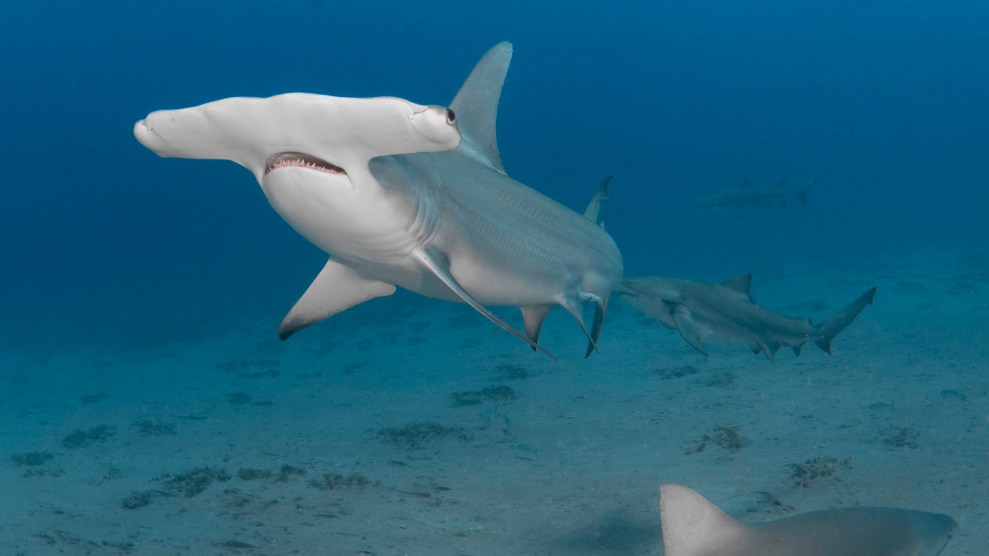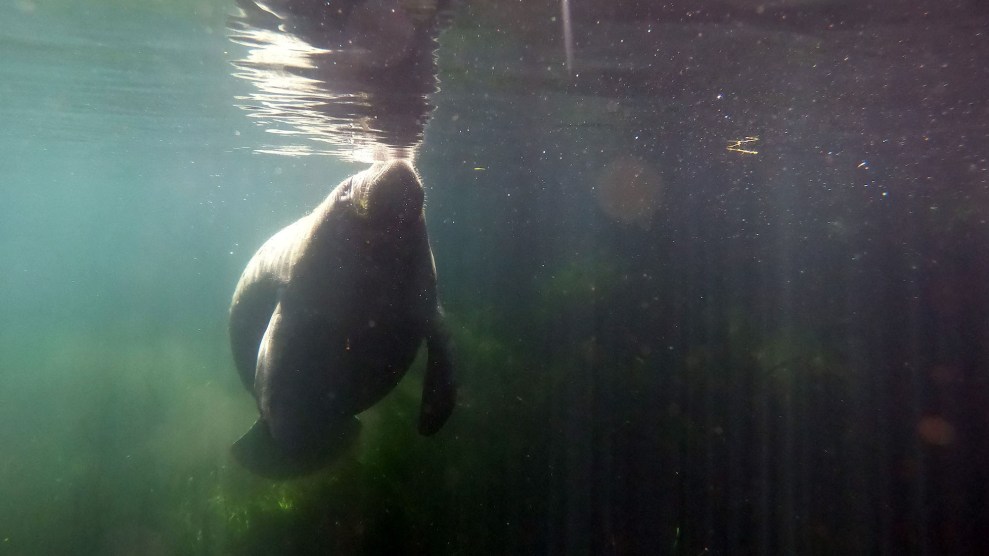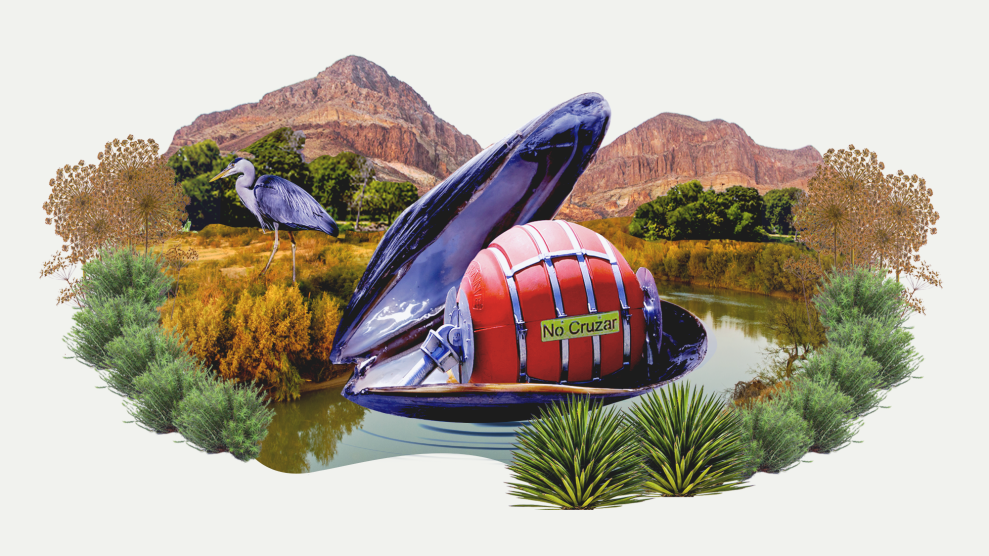
Josh Schellenberg/Media Drum World/Zuma
This story was originally published by Hakai and is reproduced here as part of the Climate Desk collaboration.
Hammerhead sharks—fish with pronounced oblong heads and bodies as long as small cars—are unmistakable. Seeing one of these critically endangered animals is a thrill, but seeing nearly a dozen plying the water side by side is worth writing home about. This was especially true for Mauvis Gore and her colleagues when, in 2022, they saw a group of scalloped hammerheads off the Cayman Islands—the first time since the 1970s that hammerheads have been seen schooling in the Caribbean Sea.
“It was just luck, I think,” says Gore, an ecologist at Scotland’s Heriot-Watt University. Gore and her colleagues were exploring the Cayman Trench, a deep rift in the Caribbean seafloor, using underwater video cameras. “I saw this thing swim across the screen, and it was a hammerhead—you cannot miss a hammerhead shark, and it can’t possibly be anything else,” says Gore. “And then more hammerheads followed! It was just so wonderful to see. I could not believe it.”
In the Pacific Ocean, near the Galapagos Islands, divers routinely see scalloped hammerhead sharks schooling in groups that are hundreds strong. Huge schools used to be common in the Caribbean, too. But as hammerheads have inched closer to extinction, there just haven’t been enough left to school in most of their range, which extends throughout much of the world’s tropical and temperate waters.
Cassie Rigby, who is in charge of assessing the population status of scalloped hammerhead sharks for the International Union for Conservation of Nature’s Red List of Threatened Species, says the observation of schooling hammerheads is a promising sign for the species’ future. While exciting, Rigby says this observation alone isn’t enough to call the population recovered. She stresses that a lot more needs to be done to stop scalloped hammerheads from declining further.
Gore and her colleagues agree it’s not time to hang a Mission Accomplished banner for hammerhead shark conservation just yet. But the team—which includes Johanna Kohler, a project officer at the Cayman Islands Department of Environment—is excited nonetheless. “I was crying when I saw the video,” Kohler says.
The Cayman Islands, a British overseas territory, has outlawed fishing for sharks and rays for nearly a decade, says Kohler. “We’ve had marine parks in place for more than 40 years, and sharks have been fully protected here since 2015, so our oceans are thriving compared to many other places.”
Kohler stresses that it’s hard to tell whether the territory’s relatively strong protections are the reason why hammerheads are schooling again. But with hammerhead populations still recovering from historical overfishing, she believes the country’s conservation efforts are helping.
“Working in conservation is such a struggle, and you don’t always see evidence that it worked,” Kohler adds. “Sometimes you just see slight little changes. But this was amazing, and it gave me hope that maybe we’re winning and we should keep going.”

















